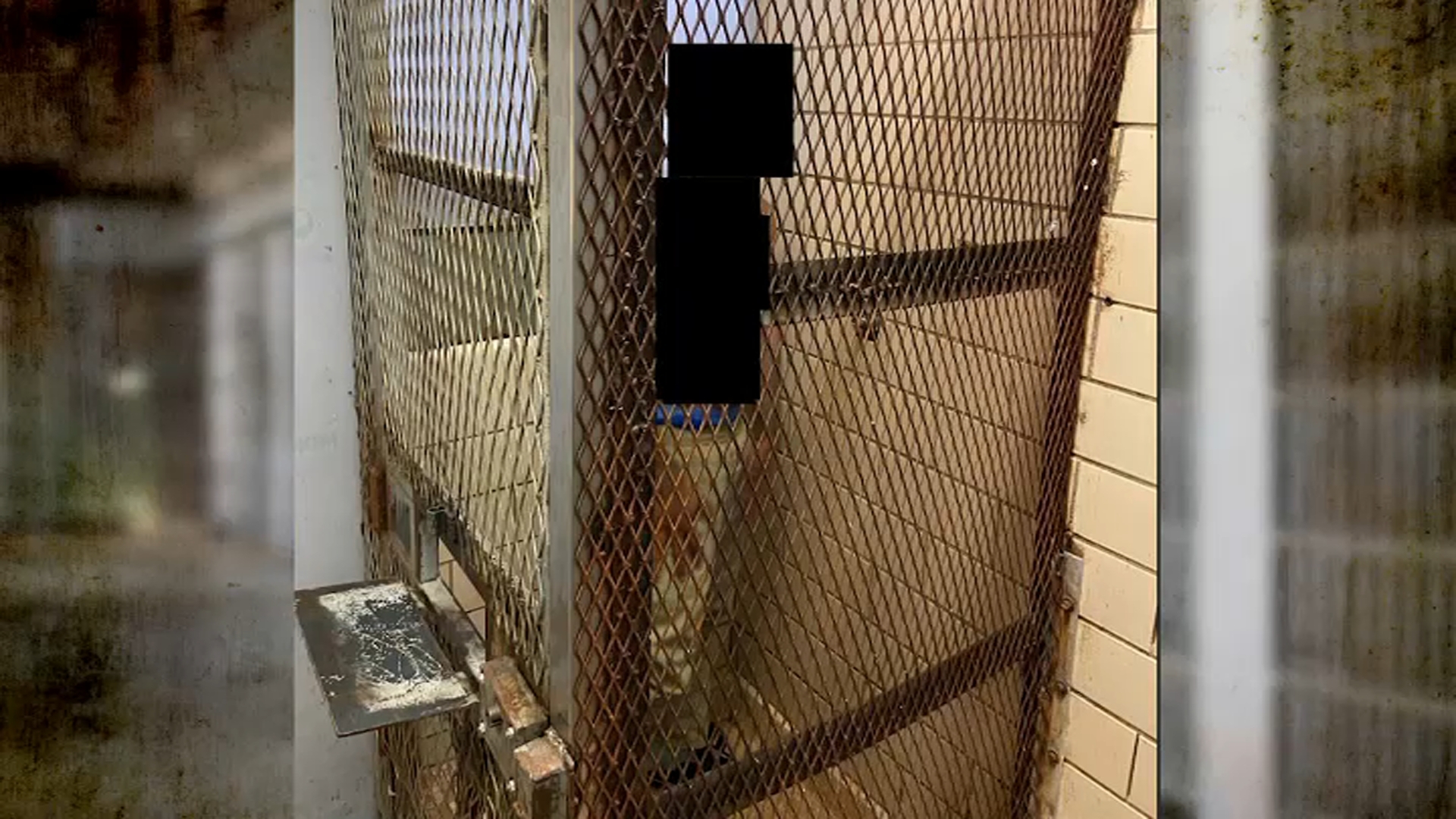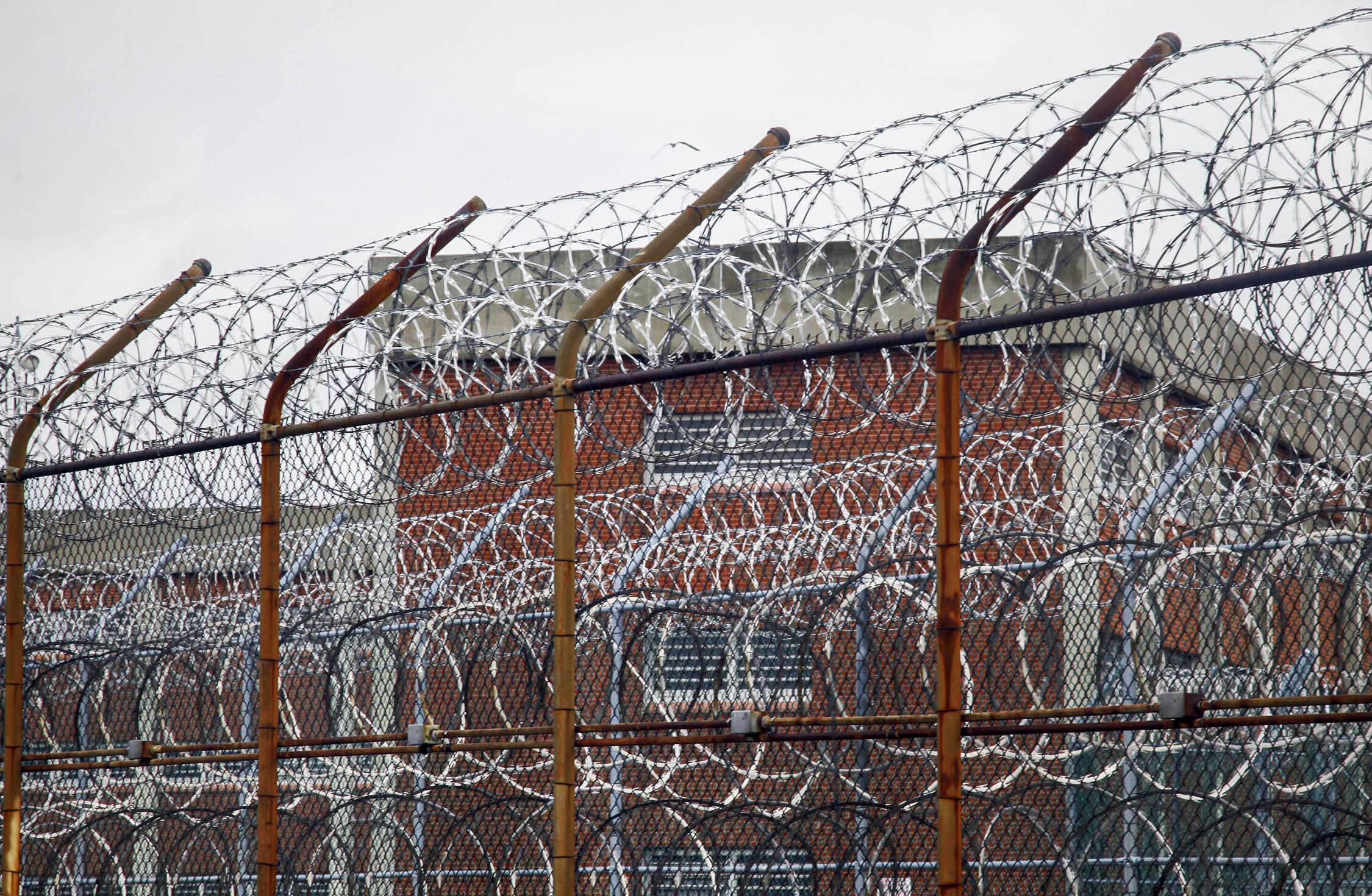Last month, a jail oversight board publicly shamed Rikers Island officials for using showers as de facto cages – locking detainees in narrow stalls for hours at a time. The NYC Department of Correction responded by pledging to dismantle one shower cage in the Eric M. Taylor Center (EMTC), a building that houses adult and juvenile males.
But emails obtained by the I-Team show there are several other facilities on Rikers Island where locking shower stalls remain intact.
According to a September correspondence between jail regulators at the city’s Board of Correction, there are at least eight operational shower cages in six other buildings on Rikers Island. Some of the locking stalls are barely 3 feet wide.
Get Tri-state area news delivered to your inbox.> Sign up for NBC New York's News Headlines newsletter.
“It’s disturbing. It’s insulting,” said Tamara Carter, whose son, Brandon Rodriguez, committed suicide while locked in a Rikers Island shower stall last year. Rodriguez was awaiting trial on a domestic violence charge when correction officers put him in the shower cage for more than 6 hours following a jail altercation.
The controversial stalls are officially called “decontamination showers.” Their intended purpose has been to rinse detainees off when they are hit with chemical sprays used to break up jailhouse fights. But jail watchdogs have alleged correction officers routinely use the cages as a way to isolate prisoners for hours - even if they’ve not been subjected to chemical sprays.
Carter has now filed a federal civil rights lawsuit against the Department of Correction, alleging jail officers used the shower cage as a prohibited form of solitary confinement against her son, who suffered from bipolar and depressive disorders. Her attorney, William Wagstaff, says Brandon Rodriguez was a known suicide risk who should have never been held in isolation.

“He, at least 6, 7, 8 different times, while he was in this shower cell, said he was going to kill himself,” Wagstaff said. “He was someone by law, by New York City regulation, that couldn’t have been placed in solitary confinement.”
The Department of Correction has said Rodriguez’s death and the death of Elijah Muhammad, another detainee who attempted suicide in a shower cage, are both under investigation. A correction officer involved in Muhammad’s case was fired by the department.
Danielle DeSouza, a DOC spokesperson, sent the I-Team an email saying decontamination showers should not be used as holding pens and citing a July security memo that notified correction officers they would face discipline if they keep detainees in the shower stalls longer than needed to wash off chemicals.
But the emailed statement also extoled the need to isolate problem prisoners using “security apparatus.”
“It’s a basic correctional practice to use security apparatus in jails, and we must have the ability to separate violent detainees from staff and other people in custody,” the statement read.
When asked why jail officials dismantled a shower cage in one building, but left multiple cages in other facilities intact, the DOC cited architectural differences. According to the email from DeSouza, the design layout of shower stalls in EMTC allowed for the safe removal of a security barrier, but removing locking doors and gates from shower stalls in the other buildings was determined to create unsafe spaces for decontamination.
Critics say blaming architectural differences contradicts Commissioner Louis Molina’s own words on the matter.
Just weeks before the DOC pledged to dismantle the shower cage in the Eric M. Taylor Center, Molina expressed opposition to the idea in an email to the Board of Correction. “As for the decontamination shower, I am not inclined to dismantle it. It serves a useful purpose and we do not have a reasonable alternative at present,” Molina wrote.
Tamara Carter says she believes the real reason Rikers Island brass dismantled one shower cage – but left eight others intact – was to pacify outraged regulators, while keeping a form of solitary confinement available.
“It seems like they are very blatantly telling us, we’re still going to torture people,” Carter said. “We’re going to close this one down to satisfy whomever, and we’ll continue torturing people.”
The City Council is currently considering a bill that would ban all forms of solitary confinement in Rikers Island jails, but Mayor Adams and Commissioner Molina have raised concerns about the legislation – suggesting the isolation of violent prisoners is sometimes necessary to keep the rest of the jail staff and other detainees safe.




